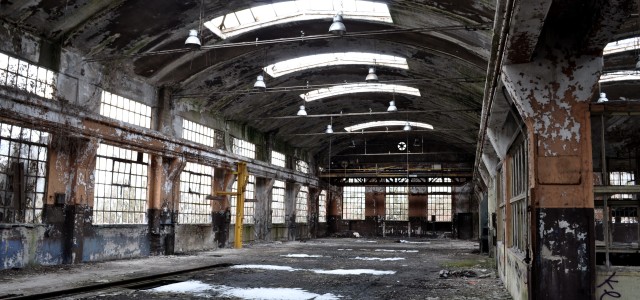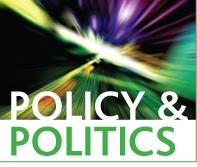Mhairi Mackenzie, Chik Collins, John Connolly, Mick Doyle and Gerry McCartney
The Policy Briefing section of Discover Society is provided in collaboration with the journal Policy & Politics. The section is curated by Sarah Brown.
We know from decades of international research that power, politics and specific social and economic policies have a fundamental role in creating health. These factors contribute very significantly to the gradient we see across income groups in terms of life expectancy and more general wellbeing.
However, many health policy researchers have identified how policies which claim to be about reducing health inequalities seldom squarely address these fundamental determinants of health. Instead, policies have a distinct tendency to focus on changing the behaviours of (mainly) poor people. The message is often that people smoke too much, drink too much or don’t make the best use of services that are available to them. These messages do not give proper consideration to why particular health damaging behaviours occur in particular places or why health is worse in certain places even in the absence of these behaviours. Even those policies which do start with a broader analysis of the problem of disparities in health are subject to lifestyle drift when it comes to putting policy into practice. Although policy documents may state that the causes of poor health or inequalities in health are to do with poverty and deprivation, the interventions which actually operate on the ground focus much less (if at all) on changing people’s material circumstances and rather more on trying to change behaviours (which are in fact heavily shaped by material circumstances).
In light of the above, it is unsurprising that research in different countries also shows that when policy makers and practitioners talk about how health is created they tend not to give due regard to these known fundamental causes. Again, the emphasis is on explanations that focus on individual lifestyles. Behavioural interventions aimed at changing the lives of poor individuals clearly have a powerful draw on the attention of policy makers. The reasons for this preference are many and varied and include the desire for quick policy wins over longer term action and the seductive appeal of short and simplistic causal pathways to health, in preference to having to deal, intellectually and practically, with the longer and more complex pathways which are actually at work.
Another reason, however, for the hardiness of the behavioural intervention as a policy tool – despite its apparent lack of success in addressing the problem – is that it fits within a broader contemporary political narrative. That narrative tells us that individuals are responsible for making and breaking their own life chances. Consequently, their health and social outcomes lie overwhelmingly in their own hands. There is, in this view, ‘no such thing as society’, or at least no wider societal determinants which individuals can’t be expected to just over-ride through their personal choices and individual acts of will. In this narrative the state’s role is to ‘nudge’, ‘activate’ or mandate individuals to do the right thing rather than to challenge fundamentally the existing power relations within society.
This kind of thinking is part of the wider set of discourses, policies and practices associated with neoliberalism. These provide both the context in which, and the mechanisms through which, the lives of some communities have become in many ways much more difficult since the 1980s – and their existence and identity much more marginalised. Research tells us that it is this fundamental part of the story of how poor health is created that is largely missing from the discourse of those in policy and practice.
In our recent Policy & Politics article: working-class discourses of politics, policy and health: ‘I don’t smoke; I don’t drink. The only thing wrong with me is my health’, we wanted to look at how people living in deprived communities – which had felt the brunt of deindustrialisation in the 1980s and had been at the sharp edge of austerity in current times – talked about how politics and policies had impacted on their health, and that of their families and their wider communities. Unlike the messages from policymakers, our sample of participants in the towns of Kilmarnock and Cumnock in East Ayrshire, Scotland, brought vividly to life how it is that power, politics and social and economic policies are indeed a fundamental matter for health – at both an individual and community level.
Here are some of the things our participants told us:
They do not feel at all valued by political elites; on the contrary they are made to feel literally surplus to requirements. An ex-miner told us: ‘I’ve heated their bums wae coal…we’ve served wur cause. If they could dae away wae you noo, they would dae away wae you, because you’re a drain on society…They want me, noo, to work til I’m sixty-seven. I’ve no chance of working to I’m sixty-seven. I’ll no’ see sixty-seven.’ Similarly, another respondent, reflecting on ‘austerity’ and so-called ‘welfare reform’, simply said, “I think they’re trying to kill folk aff”.
They sense that deliberate action was taken by government to destroy the industries on which their communities had depended, and to undermine the strong and more solidaristic community relationships which had prevailed in the past. A respondent from Kilmarnock said: “She [Thatcher] allowed a’ the work to go abroad. And oor factories in Kilmarnock…we had a great town, and it just finished. Factory after factory, well-known brands…employers went. They all went wi’ a feeling o’ sorrow but it didnae help the workers.” Another ex-miner from Cumnock, reflecting on the 1984-85 Miners’ Strike across the UK, said: “looking back you can see the preparation got made. And they really backed the union into a corner … it was to diminish the power of the unions and fragment communities”.
Where ‘negative lifestyles’ exist within these communities, they are seen as closely connected to broader social and political circumstances. Another ex-miner told us how downwardly spiralling morale and behaviours in his community were rooted in changing circumstances: ‘The factories started slimmin doon, cutting workforces. The ability for young people to get into work was becoming limited. We started to see probably drugs in our community for the first time. And probably the excessive drinking was starting to take a hold as well…’ Further, not all of our participants were able to understand their current poor health in terms of their own behavioural decisions – as we indicate in the title of our research paper – one man in poor health summed up this personal conundrum by saying ‘I don’t drink; I don’t smoke – the only thing wrong with me is my health’.
Participants are conscious of current day political strategies to set poor and struggling communities apart from the rest of society. One young woman said: ‘They are using the media…tae bombard folk wi’ … the good old ‘divide and conquer’…it’s like stigmatising full groups at a time. It comes in waves. I mean, the immigrants’ll be due a shot…it’s a’ their fault. It’s like they’re trying to deliberately create this, ‘Everybody that’s on incapacity’s a scrounger.’”
All in all, our research participants provided a vivid articulation of links between politics, policies, deindustrialisation, damage to community fabric and impacts on health. We ask: given the way in which these lay participants’ understandings of health reflect (and enrich) the views of researchers, should our participants and the many who share their stories, actually be the ones educating policy makers and practitioners, rather than being seen as the recipients of perennially failing health education messages? What might be the impact of turning the traditional health education model on its head? How would such a shift in who is doing the educating be received by policy-makers and practitioners?
Mhairi Mackenzie is Professor of Public Policy in the School of Social and Political Sciences at the University of Glasgow. Chik Collins is Professor of Applied Social Science in the School of Media, Culture and Society at the University of the West of Scotland. John Connolly is Senior Lecturer in Public Policy at the University of West of Scotland. Mick Doyle works for the Scottish Community Development Centre. Gerry McCartney works for NHS Health Scotland.

